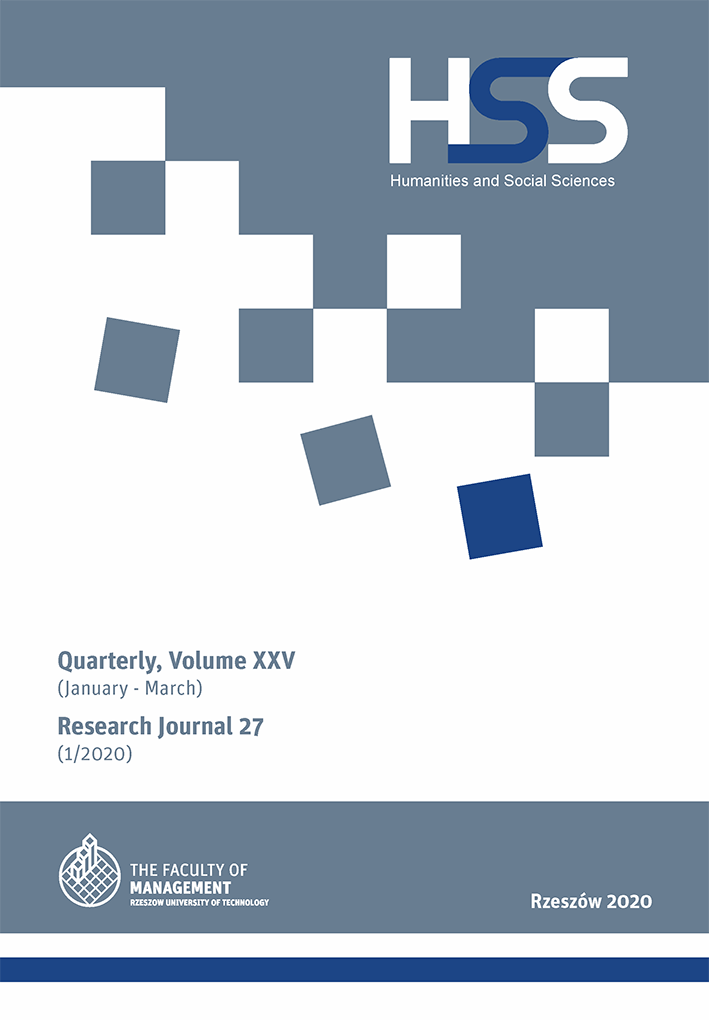Abstrakt
The aim of the article is to explore the Christology models in modern Christianity that demonstrate a reaction to vital sociocultural and spiritual inquiries. This article also aims to realize the importance of Christ for humans to satisfy their needs for addressing some important issues that arise in modern social processes. The theoretical basis of this research is a paper dedicated to a philosophical and religious comprehension of evolutionary processes within the Christological doctrine in the theology of Christian churches. Some of these ideas were put forth by P. Enns, M. Erickson, T. Layne, A. McGrath, Ch. Ryrie, and H. Thyssen. Contributions of other modern scholarly work is from O. Sahan, P. Saukh, L. Fylypovych, and O. Shepetiak. The embodiment of key ideas formulated by the researchers enables us identify some basic aspects of the issue under analysis within a global context. The novelty of this research lies in a complex philosophical and religious analysis of the Christology doctrine content and its influence on modern trends of spiritual development in the context of the general civilization. An important issue lies in the comprehension of models within some Christological doctrines in the Christian thought and their current transformations in the system of methodological items that are interrelated with the personality of Jesus Christ. This understanding comprises a conceptualization of Christ as the world's Savior or historical personality and revelation of boundaries among the nature of Christ and his service. This understand is some kind of literalism in understanding of the Christ incarnation. The article identifies some modern Christological models that aspire to save their innovations within the religious worldview by means of dogmatic ideas (i.e., a constant reference to biblical texts, own theological representatives) together with some cult and institutional aspects (i.e., an intensification of rigor, ritualization, and inner fragmentation). Conclusions. The existence of real Christological views in the Christian thought testifies that theologians of all Christian denominations seek a Christological model construction to satisfy societal spiritual needs and inquiries. In today's changing world, Christian churches have antagonistic positions with respect to globalization and secularization. However, Christian churches demonstrate a modernization of their traditional beliefs and ways of practical activity in view of Christological questions. Nevertheless, the majority of theologians that belong to different Christian faiths improve the existent ideas or develop new conceptions in understanding Christ as the world’s Savior or historical personality. Theologians also provide new conceptions in the revelation of boundaries among the nature of Christ and his service. Such an approach encourages a search of Christological doctrine for common tendencies. Through this analysis, we propose a vision for the future and a Christological basis of modern dialogue. However, traditional doctrine discrepancies among Christian confessions prevent a more unified view based on Christological beliefs.
Bibliografia
Avgustin (1988). O blazhennoj zhizni. Tvoreniya: v 4 t. SPb.: Altejya; K.: UCIMM-Press.
Badiu, A. (2009). Kontsept modeli. Vstup do materialistychnoi epistemolohii matematyky. K.: Nika-Tsentr, 232.
Benedikt XVI (2009). Caritas in Veritate: entsiklika o tselostnom chelovecheskom razvitii v lyubvi i istine Verhovnogo Pontifika Benedikta XVI : episkopam, presviteram i diakonam, monashestvuyuschim, vernyim Hristu miryanam i vsem lyudyam dobroy voli. Moskva: Izd-vo Frantsiskantsev, 112.
Fylypovych, L. (2010). Hlobalizatsiia relihiinoho zhyttia ta perspektyvy konfesiinoho rozvytku v Ukraini. “Relihiia ta sotsium“ No. 2.
–––– (2013). Fundamentalizatsiia khrystyianstva yak tendentsiia suchasnoho relihiinoho zhyttia. “Relihiia ta sotsium“ No. 3–4.
Kokhanovska, M. (2017). Suspilnyi lad u vchenni Katolytskoi tserkvy. “Humanitarnyi korpus: [zbirnyk naukovykh statei z aktualnykh problem filosofii, kulturolohii, psykholohii, pedahohiky ta istorii]” No. 10.
Krylov, P. (2015). Teologiya osvobozhdeniya v Latinskoj Amerike: socialnye idealy i poli-ticheskaya praktika. “Kontury globalnyh transformacij: politika, ekonomika pravo” No. 8 (4).
Meleshko, A. (2013). Germenevtika bogosloviya osvobozhdeniya: Obschina i svoboda. “Bogoslovskie razmyishleniya: Evro-Aziatskiy zhurnal bogosloviya”. Spetsvyipusk: Bibliya. Bogoslovie. Tserkov.
Mironov, V. (2016). Soyuz kulturyi, nauki, religii (myisli mudretsov). Ch. 3 (gl. 67–97). M.–Berlin: Direkt-Media.
Reati, F. (2002). Bog v XX veke: chelovek – put k ponimaniyu Boga (Zapadnoe bogoslovie XX veka). Sankt-Peterburg: Evropejskij Dom.
Shepetiak, O. (2014). Sotsialne vchennia Tserkvy v entsyklikakh rymskykh pap. “Hileia: naukovyi visnyk” No. 83.
Viter, D. (2011). Neomarksystski idei v suchasnii khrystyianskii teolohii. “Kolehiia. Paradyhmy teolohii, filosofii relihii i relihiieznavstva” No. 7 (20).


